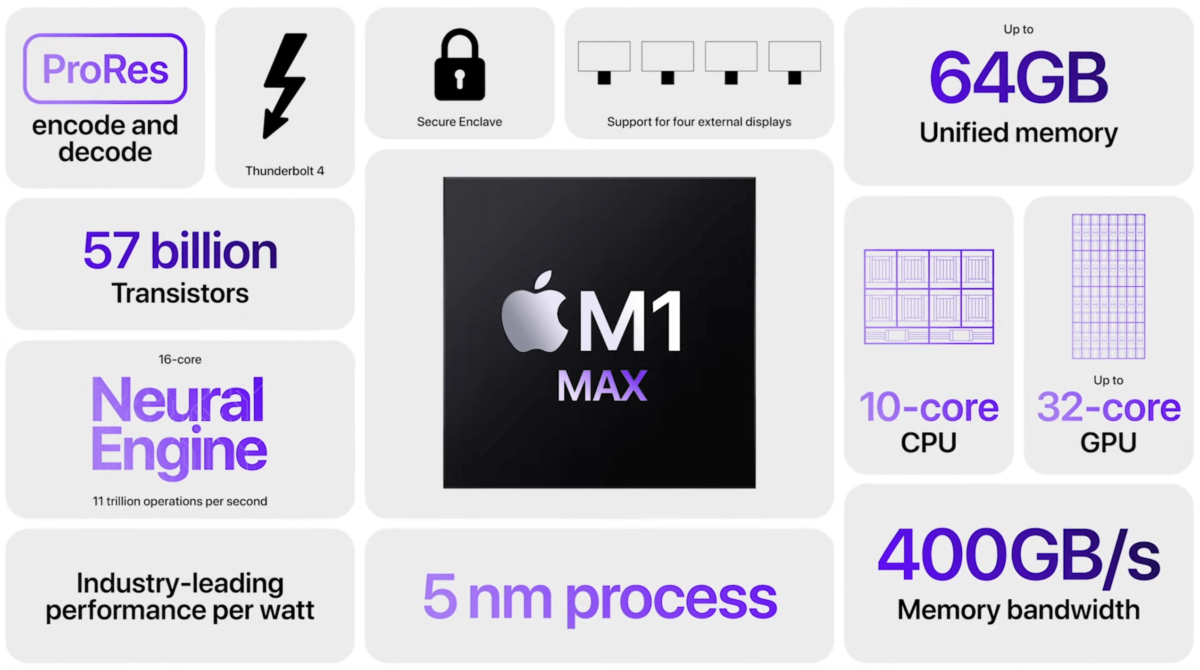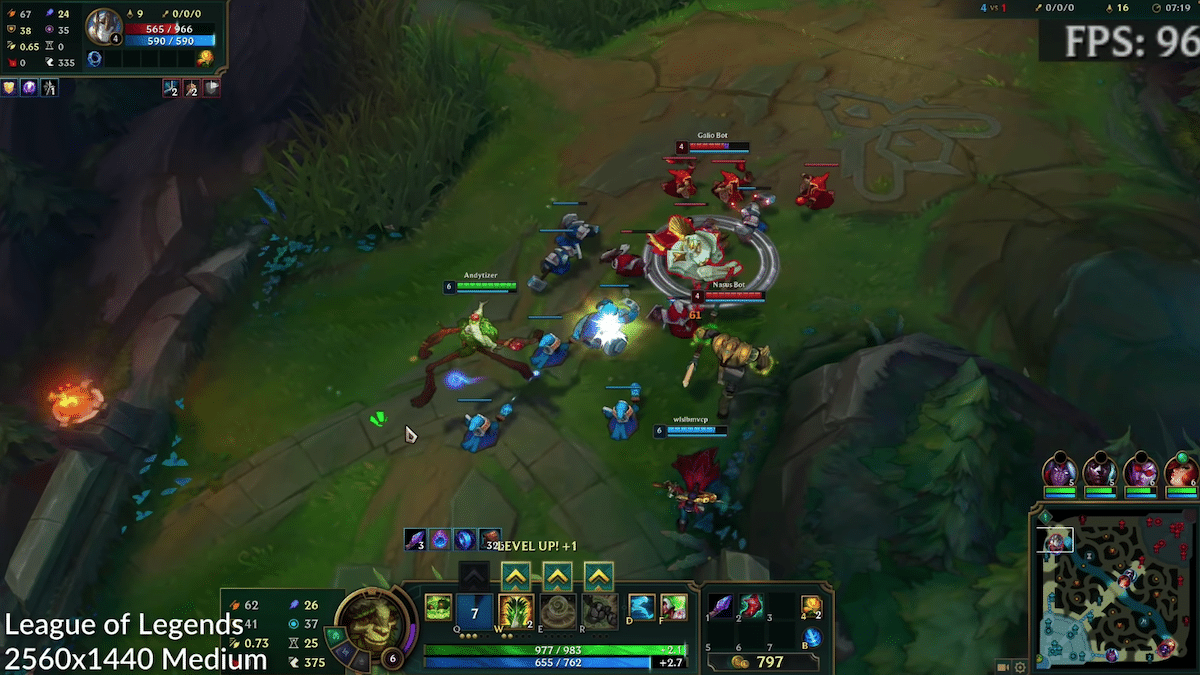The new 16-inch M1 Max MacBook Pro is Apple’s highest-tier pro notebook with a 10-core CPU with 8 performance cores and 2 efficiency cores, 32-core GPU, 16-core Neural Engine, and 400GB/s memory bandwidth.
YouTuber @Andrew Tsai tested gaming benchmarks of 16-inch M1 Max MacBook Pro on 10 most popular multiplayer games in 1440p to know the average frame rate per second on each game. However, it must be kept in mind that most games do not offer native support for the M1 Max chip yet and were running on Rosetta 2.

16-inch M1 Max MacBook Pro multiplayer gaming benchmarks in 1440p – average fps performance
The latest pro notebooks outshine Intel-based Macs and PC by miles. The 16-inch M1 Max MacBook is called a powerhouse for its high performance and power efficiency. Although the machines lag behind in gaming without native support, Apple’s most powerful M1 Max chip delivers a decent gaming experience. After testing gaming benchmarks @Andrew Tsai has complied a list of 10 multiplayer games which users can enjoy on the 16-inch M1 Max MacBook Pro.
- League of Legends (Rosetta 2) – 110 fps
- World of Tanks (Rosetta 2) – 45 to 55 fps
- StarCraft II (Rosetta 2) — 80 fps
- Dota 2 (Rosetta 2) – 80 to 90 fps
- World of Warcraft (Native ARM) – 150 to 200 fps
- Rocket League (Parallels) – 65 to 75 fps
- Diablo III (Rosetta 2) – 110 fps
- Rust (Rosetta 2) – 70 to 80 fps
- Minecraft – 133 to 319 fps on Rosetta 2 and 187 to 480 fps on Native ARM
- Final Fantasy XIV (Wine) – 60 to 75 fps

Regarding M1 Max chip’s performance, Johny Srouji, Apple’s senior vice president of Hardware Technologies said:
“M1 has transformed our most popular systems with incredible performance, custom technologies, and industry-leading power efficiency. No one has ever applied a system-on-a-chip design to a pro system until today with M1 Pro and M1 Max. With massive gains in CPU and GPU performance, up to six times the memory bandwidth, a new media engine with ProRes accelerators, and other advanced technologies, M1 Pro and M1 Max take Apple silicon even further, and are unlike anything else in a pro notebook.”
Read More:
- M1 Pro and M1 Max Geekbench and Cinebench benchmarks show how fast they are [U: GFXbench 5]
- Gaming benchmarks of MacBooks running on M1, M1 Pro and M1 Max chips – M1 Pro is a significant upgrade from M1
- Apple’s M1 Max outperforms AMD Radeon Pro W6900X in Affinity GPU benchmark
- M1 Max vs Nvidia RTX 3080 comparison shows Apple lags in gaming benchmarks

